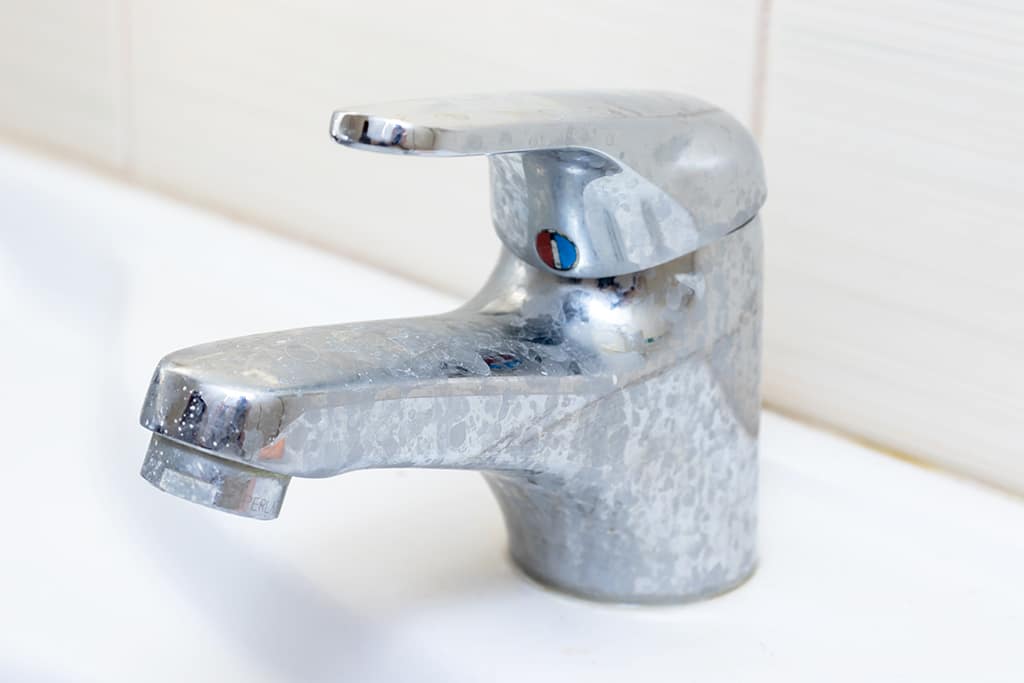
Plumber Tips: The Definitive Guide To Removing Limescale | Myrtle Beach, SC
Photo By ReaLiia at Shutterstock
Limescale is a constant in almost every household. Sometimes, it can be harmless, although aesthetically unpleasant. At other times it can cause damage, and stop appliances working, or even clog up pipes and faucets, preventing your plumbing from working properly.
It’s usually at that point that you would call a plumber, and at Benjamin Franklin, we’re happy to oblige any call-out or concern you have especially if you live in the areas around here.
What is limescale?
Limescale is natural and is a by-product of hard water – water that has a lot of minerals and other elements such as calcium. The H2O from hard water may evaporate, but what it leaves behind is these mineral deposits, which produce green-tinged white crusty substances.
Hard water is pretty common, even in Myrtle Beach, SC. But as normal as it is to experience limescale around your house, it’s a mighty inconvenience if it affects the working order of your appliances.
Any plumber at Benjamin Franklin has dealt with limescale for years and we can share exactly what we know about it with you.
Why get rid of limescale?
Limescale can cost you money, pure and simple, and for that reason you should get rid of it.
If your appliances are tinged with limescale then it affects their efficiency and even their longevity. You don’t want to be prematurely replacing items or calling a professional every week.
Typical items affected by limescale include showerheads, a pretty common item to get clogged up with limescale build-up at the point of water emission, which will impact your water pressure too, and you’ll also see limescale form on your tiles.
Such impacts hurt your household expenses because you’ll need more energy to take a shower or use these appliances in the long run. So it’s worth tending to limescale build up in the short term.
Faucets are another common victim of limescale, around the mouth, and the seal. This can lead to leaks, in which case you should definitely call a plumber.
The toilet bowl can also be a victim of limescale build up – the rim where the water runs for instance can suffer from this. A blocked rim could weaken your flush, in which case you’ll be on the phone to a plumber anyway.
Chrome and stainless steel are prone to unsightly limescale, as are other surfaces in your kitchen, giving the room an overall dull facade.
Limescale can also reduce the value of your property because it ruins the aesthetics. It’s possible for limescale to cause irreversible damage too, particularly if you have chrome installations as the harsh substance can cause the chrome to peel off. And the longer that limescale is left unaddressed, it becomes harder to remove.
Getting rid of limescale
If limescale is the result of hard water in your area then it becomes logical that you might try and soften the water. Water softening works through a process known as ion exchange, which removes calcium and magnesium from the supply.
Install a water softener
If you live in a hard water area, consider installing a water softener to reduce limescale build-up.
The process also includes the use of resin beads to detach the minerals; this is called regeneration.
Water softeners need plenty of salt to work properly and regular maintenance – it should be checked around once every month. If you need help installing your water softener, then call a plumber to help you.
You can also get salt-free water softeners, which can be more economical and convenient.
It should be noted that a water softener that uses salt does not actually soften water. But a salt-free water softener does.
It leaves the calcium and magnesium minerals in the water and instead neutralizes them by altering their chemical structure so they’re unable to stay on surfaces, and, therefore, cannot form unsightly limescale.
These types of water softeners are more economical than the classic softeners that use salt, and they don’t need much maintenance. There are some soft water benefits, however, it won’t give you. These benefits include giving you softer hair and also being more gentle on your skin and clothes. Traditional soft water also means you’ll use less detergent and fabric softener.
Our team at Benjamin Franklin can advise on any water softener queries, and send out a plumber if you need help installing one.
Get a scale inhibitor
If you call out a plumber they may recommend one of these devices – a scale inhibitor or scale reducer. These devices can come in a variety of capacities. For instance, you can get one suitable for just one appliance, or you can get one that can be of use to a whole building.
How they work is a question of chemistry. To get technical, they stop limescale forming by altering its formation, taking down the rate of scaling, and the chemistry of the precipitation mechanism. Your plumber can tell you more and install one for you.
Use effective limescale removers
A tried and tested limescale remover is the classic half and half white vinegar and water mixture. You can place this mixture in a spray and then apply it to an affected area. You can also soak a cleaning cloth in the liquid, and wipe down surfaces or wrap it around fittings.
The effectiveness of this technique may also depend on which part you live as the hardness of water varies, area to area. In the worst scenario, Benjamin Franklin can also replace your sinks and bathtubs for you. We can send you a plumber at any time of day, for an emergency, consultation, or routine maintenance and checks. And we strive to make our service in Myrtle Beach, SC, as affordable as possible.
Don’t hesitate to find out more about us and our ethos by calling us today.

 843.582.0670
843.582.0670